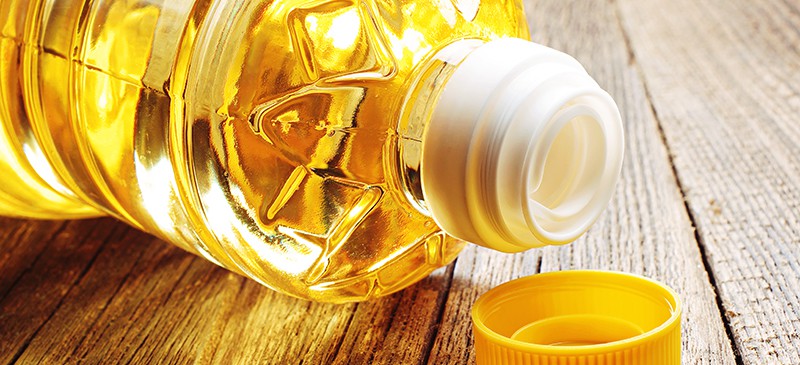This Dr. Axe content is medically reviewed or fact checked to ensure factually accurate information.
With strict editorial sourcing guidelines, we only link to academic research institutions, reputable media sites and, when research is available, medically peer-reviewed studies. Note that the numbers in parentheses (1, 2, etc.) are clickable links to these studies.
The information in our articles is NOT intended to replace a one-on-one relationship with a qualified health care professional and is not intended as medical advice.
This article is based on scientific evidence, written by experts and fact checked by our trained editorial staff. Note that the numbers in parentheses (1, 2, etc.) are clickable links to medically peer-reviewed studies.
Our team includes licensed nutritionists and dietitians, certified health education specialists, as well as certified strength and conditioning specialists, personal trainers and corrective exercise specialists. Our team aims to be not only thorough with its research, but also objective and unbiased.
The information in our articles is NOT intended to replace a one-on-one relationship with a qualified health care professional and is not intended as medical advice.
Is Canola Oil Bad for You? Plus 4 Alternatives
July 31, 2023

Is canola oil good or bad for you? When it comes to canola oil, some people view it as a healthy food while others avoid it at all costs. When there are two extremely passionate viewpoints, it can be very challenging to get to the bottom of it all.
On the one hand, detractors claim that canola oil is completely toxic, contains “the infamous chemical warfare agent mustard gas,” and causes very problematic conditions. On the other hand, supporters believe that canola oil is one of the healthiest oils on the planet and offers benefits because it’s rich in omega-3s, low in saturated fat and is a good source of oleic acid.
With so many oils on the market and so much talk about the different types of oil, it’s time to sift through the research and determine whether or not canola oil is good for you.
What Is Canola Oil?
Rapeseed oil is made from the rapeseed plant, specifically from the seeds of the rape or rapeseed plant, which is a member of the mustard (Brassicaceae) family. A genetically modified product, canola oil is a Canadian invention that’s backed by Canada’s government, cheap to manufacture, and many packaged or processed foods contain it.
It was in the early 1970s that canola was first bred from rapeseed at the University of Manitoba in Canada by Keith Downey and Baldur R. Stefansson. Canola oil was first created in the early 1970s as a natural oil, but in 1995, Monsanto created a genetically modified version of canola oil. As of 2005, 87 percent of canola grown in the U.S. was genetically modified, and by 2009, 90 percent of the Canadian crop was genetically engineered. (You can purchase non-GMO canola oil.)
In 1998, “the most disease- and drought-resistant canola variety to date” was developed using genetic modification, and this is how the majority of recent varieties are produced.
Is canola oil vegetable oil? Yes, it’s a type of vegetable oil so it’s also sometimes referred to as this as well.
Wild rapeseed oil contains large amounts of erucic acid, which is known to cause health problems. As a result, the canola plant was developed from rapeseed in order to use it to produce a food-grade canola oil with lower erucic acid levels.
The name of canola oil was originally LEAR (low erucic acid rapeseed) but for marketing purposes was changed to canola oil. This word was derived from the combination of “Canada” and “ola,” meaning oil.
Canola oil price is relatively cheap so it’s not surprising that there are many canola oil uses. The oil works well as an industrial oil and has been used in candles, soaps, lipsticks, lubricants, inks, biofuels and even insecticides.
Soon it began being sold as an edible food product. It’s been brought to market with the claim that it’s a wonder oil, low in saturated fats and a source of omega-3 fatty acids. But in its current hybridized and modified state, it may cause a certain health issues.
Background
Canola oil was developed as the food industry began to search for healthy and cost-effective alternatives to saturated fats in oils. These saturated fats had come to the mainstream attention as a result of the American Heart Association and other U.S. government agencies spreading reports of saturated fats, often found in commonly used cooking oils, being bad for your heart health.
Many of these reports were particularly aimed at corn oil and soybean oil. As food manufacturers searched and experimented, they discovered rapeseed oil. Rapeseed oil is monounsaturated oil and low in saturated fat.
Food manufacturers continued their journey into refining rapeseed and canola oils until they came up with a formula in the late 1970s to genetically manipulate the rapeseed plant by seed splitting. This seed split oil produced canola oil with less erucic acid and higher amounts of oleic acid, which may benefit the heart, brain, mood, skin and cells. This was the seed oil referred to at the time as LEAR.
How Is Canola Made?
To use the trademarked “canola” name, canola oil ingredients include only one thing, canola oil, but that oil can’t contain more than 30 micromoles of glucosinolates and less than two percent erucic acid.
Canola oil is made from crushing the seeds of the canola plant to express the seeds’ oil content. Each tiny seed contains about 42 percent to 43 percent oil. The leftover canola meal is commonly used as animal feed.
It’s one of several vegetable oils that go through the process of being refined, bleached and deodorized. A solvent called hexane is used to chemically extract the oil from the seeds.
Does canola oil go bad? An unopened bottle has a shelf life of about two years before it goes bad. Most sources say that an open bottle of oil will become rancid in a year or less.
Nutrition Facts
Is canola oil good for you? As is true with any food, the key to understanding the health qualities of canola is to look at the entire nutritional profile and not just one or two components.
One tablespoons (14 g) of canola oil contains about:
- 124 calories
- 14 g fat
- 1 g saturated fat
- 8.9 g monounsaturated fat
- 3.9 g polyunsaturated fat
- 0.9 g trans fat, yet other reports claim that it is much more
- 10 mcg vitamin K
- 2.5 mg vitamin E
Canola oil is low in saturated fat, and the fatty acid breakdown is as follows:
- Saturated fat: 7%
- Monounsaturated fat: 64%
- Polyunsaturated fat: 28%
Canola oil’s polyunsaturated fats include linoleic acid (omega-6 fatty acid) and alpha-linolenic acid (ALA), which is a plant-based omega-3 fatty acid. Canola oil usually has double the amount of omega-6 or omega-3, which is widely considered a healthy ratio for consumption.
Potential Risks
1. Heart health
Canola is marketed as a heart-healthy fat, but is it?
A 2018 study noted that participants who were overweight/obese and had a higher consumption of canola oil were more likely to have metabolic syndrome. This flies in the face of a 2013 report (funded by the Canola industry) that determined that canola oil lowered the risk of cardiovascular disease.
The 2018 study authors write that a “potential reason for the conflicting findings is that most of the studies included in that review used raw oil which restricts the interpretation of these studies, because canola oil is mostly used for frying, and heat can cause the loss of some of the beneficial components such as α-linolenic acid.”
A 2019 meta-analysis published in the Journal of the American College of Nutrition considered 27 trials comprising 1,359 participants. Results showed that canola oil consumption reduced total cholesterol and low-density lipoprotein cholesterol (LDL or “bad” cholesterol), especially compared to sunflower oil and saturated fat. Meanwhile, canola oil had no impact on other blood lipids such as high-density lipoprotein cholesterol (HDL), triglycerides, apolipoprotein A1 and apolipoprotein B.
More research is necessary.
2. Hypertension and Strokes
Previous studies have shown that the consumption of rapeseed oil and some other types of vegetable oils shortens the life span of stroke-prone and hypertensive animal subjects. Specifically, research carried out at the Nutrition and Toxicology Research Divisions of Ottawa discovered that rats bred to have high blood pressure and proneness to stroke died sooner when fed canola oil as the sole source of fat.
Additionally, the rats fed the non-canola oil-based diets lived longer than the rats fed canola oil.
Another study published in 2000 in Toxicology Letters specifically examined the effects of canola oil on blood coagulation time or how long it takes blood to clot in stroke-prone animal subjects. The study found that there was a “canola oil-induced shortening of blood coagulation time and increased fragility in [red blood cell membranes],” which may promote the occurrence of strokes in animal subjects that are stroke-prone.
3. Inflammation
Chronic inflammation is a health concern for many, and numerous animals studies point to canola oil increasing inflammation and oxidative stress.
A 2020 study that used a large yellow croaker fish, the researched noticed that a higher percentage of canola oil in the diet could hamper growth performance and liver health plus create more inflammation.
4. May Affect Memory
A 2017 study on mice found that chronic exposure to a canola-rich diet created both a significant increase in body weight along with memory problems. Authors went on to say that their findings did not support replacing olive oil with canola oil for most people.
Substitutes
While most vegetable oils (canola, corn, peanut, safflower, etc.) are sourced from GMO crops and/or are highly refined, here are some of the best oils for cooking and consuming raw.
1. Coconut Oil
Is coconut oil bad for you? The refined variety is chemically bleached and deodorized and is not the type you want if you’re looking for a healthier alternative to canola oil.
Coconut oil is best when it’s cold-pressed and virgin. Your coconut oil should smell like you’re on a beach in the Caribbean.
It contains medium-chain fatty acids that can support both fat loss and your nervous system.
2. Olive Oil
People often compare canola oil vs. olive oil. Olive oil has been shown to be one of the top healthy oils. Olive oil benefits are at the heart of the disease-fighting Mediterranean diet.
Look for an organic extra-virgin or cold-pressed olive oil that’s available in a darkly colored glass container. Many inferior, fake olive oils are mixed with cheaper, GMO vegetables oils so make sure it’s GMO-free.
It’s important to know that olive oil shouldn’t be cooked at high heat and its health benefits are best obtained when you used it uncooked. Olive oil is great in homemade salad dressings and for drizzling on finished products like cooked vegetables.
3. Ghee or Organic, Pasture-Raised Butter
High-quality butter or ghee both make a great canola oil substitute. Both butter and ghee benefits contain alpha lipoic acid and conjugated linoleic acid, which can promote weight loss.
Also, they contain healthy short chain fatty acids and have a higher heat threshold. When buying butter, stick with organic grass-fed varieties.
Remember, too, there’s a difference between butter and margarine. Stick with butter, as margarine often contains vegetable oils.
4. Avocado Oil
Avocado oil is a great cooking oil, as it has a high smoke point and mild flavor that goes with any dish you could imagine.
Avocado oil, along with olive oil, is a good source of monounsaturated fat, a beneficial dietary fat. It’s so healthy, in fact, if you visit France, it’s actually received prescription drug status there for its effects against arthritis.

